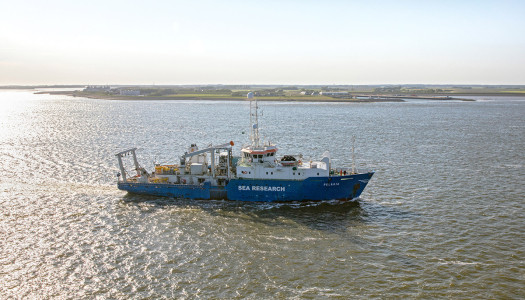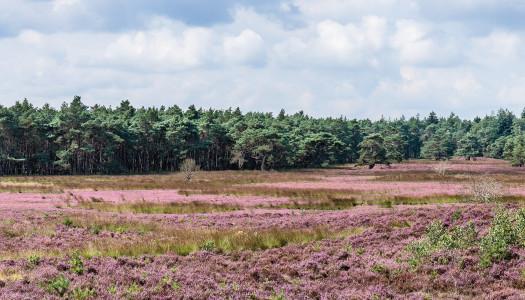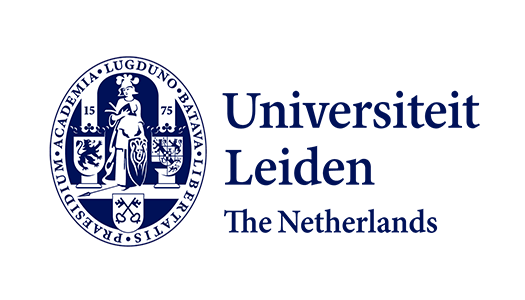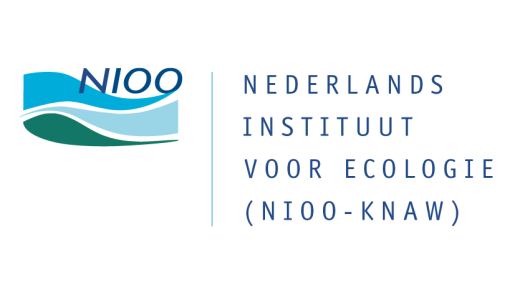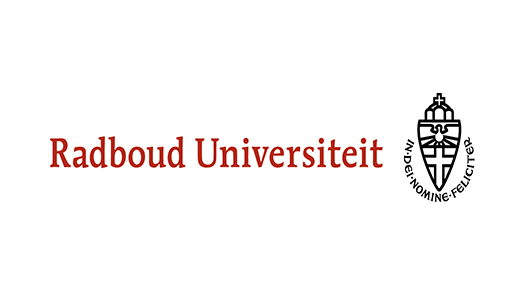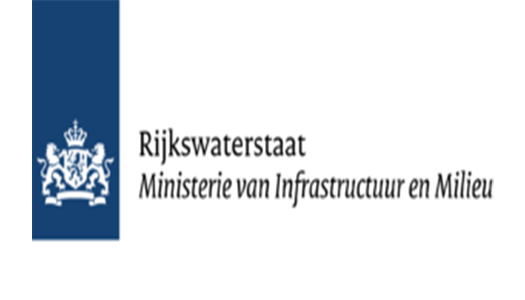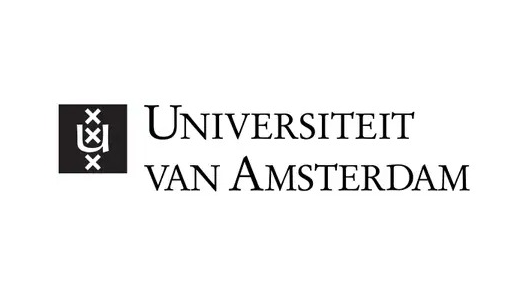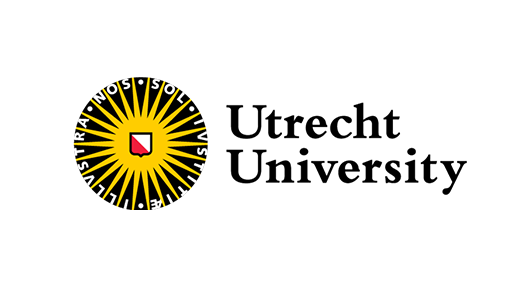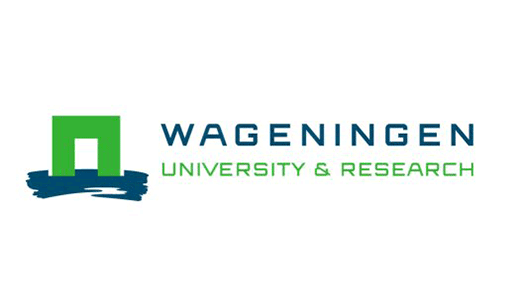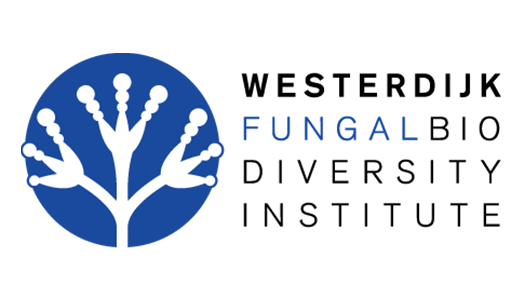Ecological research infrastructures in the Netherlands
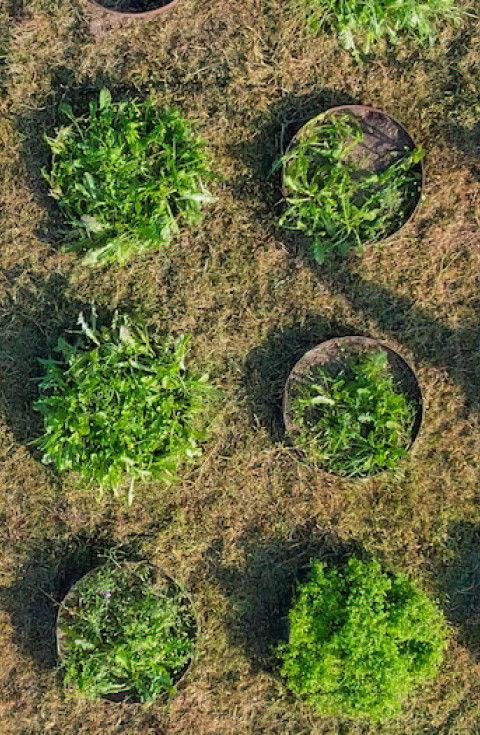
From experimental mini-lakes to research vessels, and from living labs to collections. In The Netherlands we have many and diverse ecological research facilities. This website provides a national overview of the large-scale ecological research infrastructures.
For ecological researchers in the Netherlands this overview offers opportunities to team up with other researchers and to link to existing ecological research facilities and initiatives. Currently, the inventory of large-scale ecological research facilities focuses on ecotrons, scientific (data) collections, long-term field studies and research infrastructures for fieldwork.
Map
List
Filter by
Infrastructure type
Landscape type
Institute
Active filters
Filter by
Infrastructure type
Landscape type
Institute
Active filters
-
Living Lab
The Living Lab is an outdoor lab, suited for research on the consequences of pollution from pesticides, fertilisers, microplastics, advanced materials and invasive species such as crayfish. It consists of 32 ditches (8 meter length, 50 cml width, 30-60 cm depth)that are allowed to develop natural communities so that actual biodiversity and ecosystem functionality impacts can be assessed. The ditch systems are connected o a watershed that allows natural colonization of organisms into the test ditches (=cosms).
Besides, it is an important place for education of elementary school pupils to higher education students.
-
Living Lab B7
The aim of Living Lab B7 is best summarised as providing insights and KPI’s (critical performance indicators) to Greenport Duin- and Bollenstreek, Nationaal Park Hollandse Duinen and the Deltaplan Biodiversiteitsherstel to contribute to the practice of biodiversity recovery in rural areas on local, regional and national scales.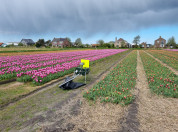
-
LTER-LIFE: a research infrastructure to develop Digital Twins of ecosystems in a changing world
The LTER-LIFE lab allows building digital twins (digital replicas) of ecosystems. With these twins, scenarios can be constructed to understand how ecosystems respond to pressures in order to develop effective response strategies. LTER-LIFE will initially focus on 2 of the most extensive and best-studied ecosystems in the Netherlands representing aquatic and terrestrial ecosystems: the Wadden Sea and the Veluwe.
-
LTSER-platform Dutch Wadden Sea
The Long-Term Socio-Ecological research platform Dutch Wadden Sea area is a large coastal area bordering the north of the Netherlands.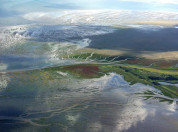
-
LTSER-platform Veluwe
The area defined as ‘the Veluwe’ lies in the province of Gelderland, the Netherlands, West of the river IJssel and North of the river Rhine. The region hosts the largest connected nature area of the country. The natural landscape consists of a mix of forests, heathlands, sand drifts, lakes, and moorlands and is surrounded by agriculture, settlements, or infrastructure. This means there is a lot of interaction between humans and nature.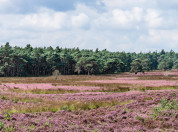
-
Marker Wadden
The Marker Wadden is a newly constructed archipelago in lake Markermeer, which aims to improve the lake’s degrading food web by stimulating primary productivity. The archipelago consists of five islands that add a currently missing habitat type to the lake: shallow, sheltered waters with high nutrient availability and gradual land-water transitions.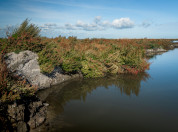
-
Mesocosms for soil-plant-insect interactions
A total of 40 mesocosms are distributed in five rows of eight mesocosms with a spacing of 0.5 m between them. In spring/summer we grow plant species that are currently expanding their range within Europe and species that belong to the same genus while being native in the Netherlands.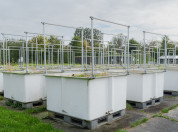
-
Microcosms
The Netherlands Institute of Ecology (NIOO-KNAW) houses 36x10L microcosms (transparent polycarbonate carboys; NALGENE, Rochester, USA) for plankton research. The microcosms can be temperature-controlled in water baths (at 0.5 °C temperature resolution), and automatically stirred through magnetic stirrers mounted below the water baths.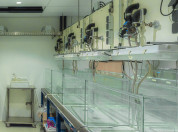
-
National Research Fleet
The National Research Fleet of the Netherlands is operated by NMF, the National Marine Facilities at NIOZ and consists of three research vessels: RV Pelagia, RV Navicula and RV Adriaen Coenen. Each is dedicated to a specific area of operation, from the shallow waters of the Wadden Sea to open oceans around the world. In addition to the vessels, NMF operates a pool of seagoing equipment.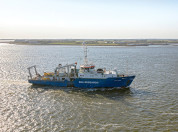
-
NPEC - Ecotron
NPEC’s Ecotron facility at Utrecht University consists of a range of 36 fully closed and controlled mesocosm systems that allow for real-life plant ecosystem analyses in real time.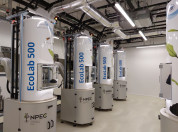
-
NPEC – Multi-Environment Climate Chambers
NPEC’s Multi-Environment Climate Chambers Module hosts a series of 15 small climate chambers with the highest level of homogeneity in temperature, humidity, and light intensity available.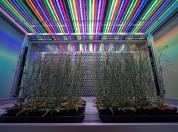
-
NPEC – Plant-Microbe Interaction Phenotyping
The Plant-Microbe-Interaction Phenotyping Module consists of two independent phenotyping installations designed for high-throughput phenotyping of the plant shoot (Helios) and in-vitro root system (Hades).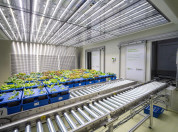
www.eco-ri.nl is initiated and maintained by the Netherlands Institute of Ecology (NIOO-KNAW), and supported by the Dutch universities and research institutes connected to NERN (Netherlands Ecological Research Network) and/or BiodiversityXL (Centre of Excellence for Netherlands Biodiversity Research).
The inventory of ecological research infrastructures is ongoing. You are very welcome to share additional information via our contact address below.
Highlighted Ecological Research Infrastructures
-
National Research Fleet
The National Research Fleet consists of three research vessels: RV Pelagia, RV Navicula and RV Adriaen Coenen.
-
Limnotrons
The limnotrons are twelve stainless steel indoor mesocosms or mini-lakes with a high level of control.
-
LTSER-platform Veluwe
The Veluwe is the largest connected nature area of the Netherlands, with a great array of ecological and socio-economic research.
Institutions with ecological research facilities
-
Delft University of Technology
-
Erasmus MC
-
HAS green academy
-
James Cook University Australia
-
Leiden University
-
Naturalis Biodiversity Center
-
Netherlands Institute of Ecology (NIOO-KNAW)
-
Radboud University
-
Rijkswaterstaat
-
Ringersvereniging (Bird banding society)
-
Royal Netherlands Institute for Sea Research (NIOZ)
-
Sovon
-
University of Amsterdam (UVA)
-
University of Groningen
-
University of Twente
-
Utrecht University
-
Wageningen University & Research
-
Westerdijk Institute
Contact
If you have any additions to the inventory, please contact the NIOO Research Support Office via rso@nioo.knaw.nl.

